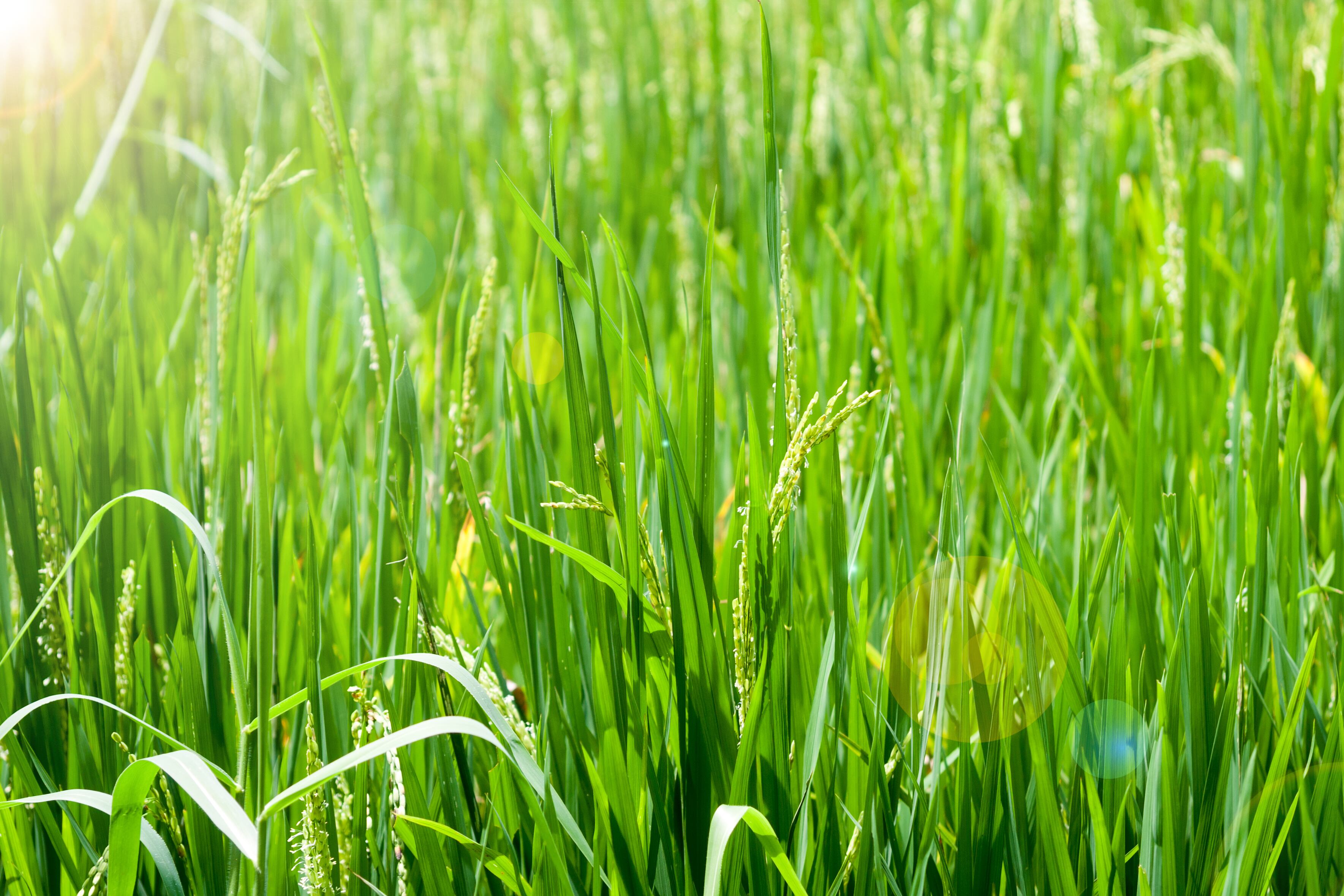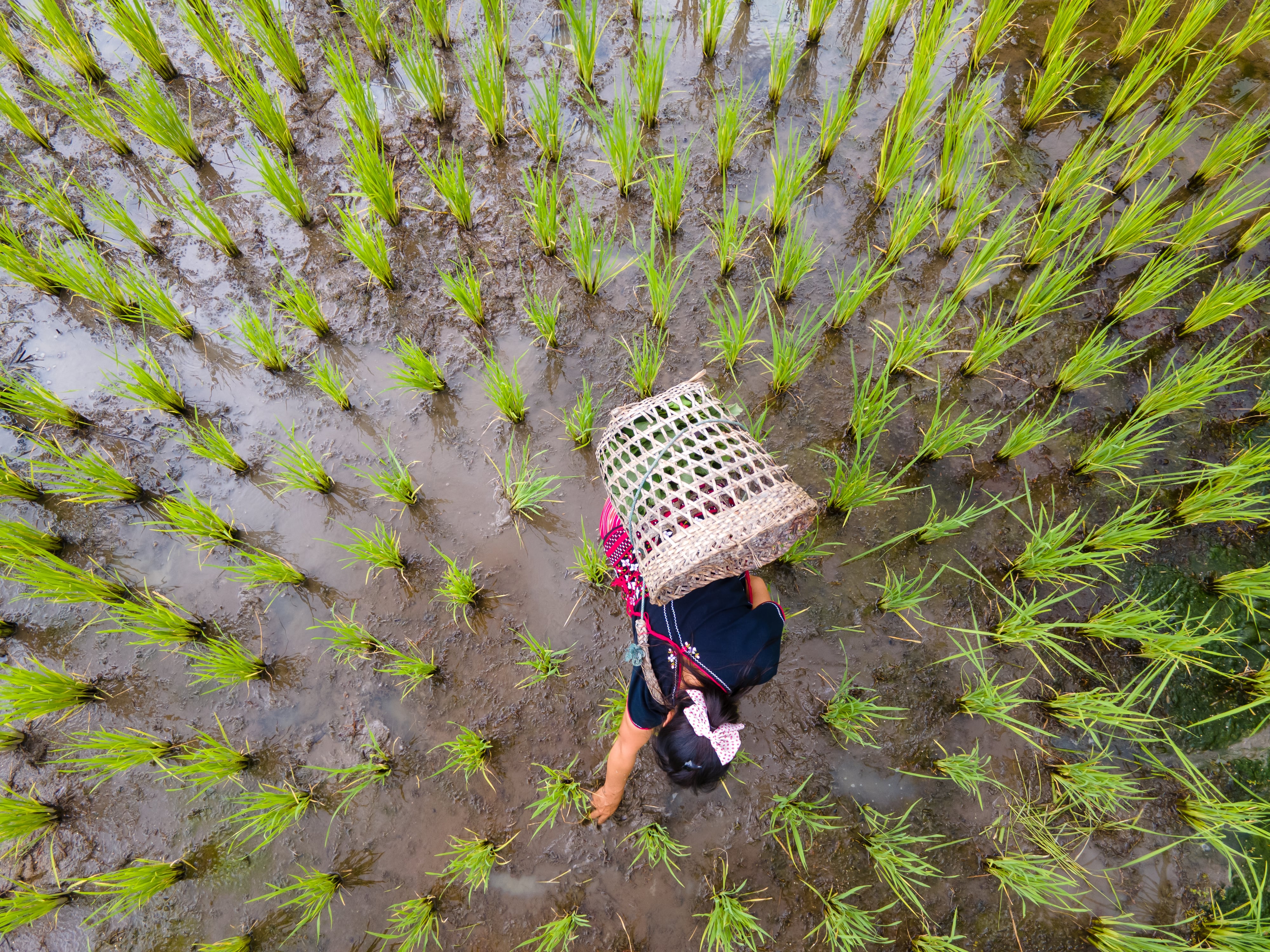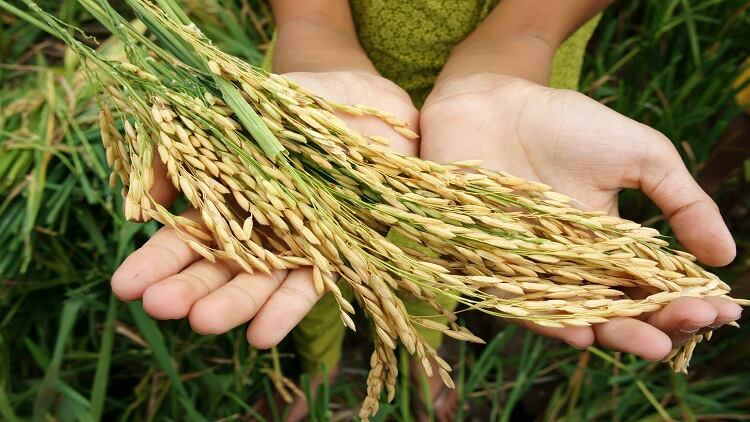For many Britons, rice fields conjure romantic and exotic visions of the Far East, eclipsing their everyday reality.
Now, in a groundbreaking trial, scientists from the UK Centre for Ecology & Hydrology (UKCEH) have successfully planted rice in British soil – specifically in the rewetted peatlands of the Cambridgeshire Fens.
The initiative, part of the AgZero+ programme, marks the first time rice has been cultivated on UK farmland and is being hailed as a symbol of agricultural adaptation to climate change.
Nine cold-hardy rice varieties, including arborio, basmati, and sushi rice, were transplanted into four mini paddy fields on land near Ely, with the first harvest expected this October. The seeds were sourced from the USDA Agricultural Research Service and propagated in UKCEH’s Oxfordshire glasshouse.
Climate-smart farming on degraded peatlands
The trials are part of a broader effort to rewet degraded peat soils, which have been heavily drained for agriculture over the past century. While the Fens produce crops worth £1.2 billion annually and supply a third of the UK’s fresh vegetables, the drainage has led to the loss of up to 12mm of peat per year, releasing carbon stored over millennia.
“Our Fenland soils are some of the most productive in the country but are very susceptible to the changing climate,” said Sarah-Jane Taylor, who farms the trial site. “We need to adapt the crops we grow and how we grow them.”
Rewetting peatlands is seen as a key strategy to reduce greenhouse gas emissions, restore ecosystems, and build climate resilience – while maintaining food production and farmer livelihoods.
Science-driven solutions for net zero agriculture
Led by Professor Richard Pywell, UKCEH is testing a range of crops – including rice, lettuce, hybrid willow, and wet woodland – on rewetted peat to assess their viability under waterlogged conditions. The team is measuring carbon stocks, GHG emissions, water use, crop yields, and biodiversity impacts to inform future land use decisions.
“By its very nature, this is an experiment and so it will be interesting to see how the traditional produce and novel crops like rice perform on the rewetted peat soils alongside other land use options such as biomass production and habitat for nature,” said Pywell. “We hope to be monitoring the site over the coming years to assess the long-term viability and resilience of these land use options to a changing climate.”
The project is part of a wider partnership between UKCEH, Defra, and Fenland farmers, exploring trade-offs between food production, bioenergy, and nature-based solutions on rewetted and drained peat soils.
No pain, no grain
With the UK increasingly exposed to climate shocks and supply chain disruptions, the rice trials offer a glimpse into how domestic agriculture might evolve to meet future food security needs. Rice, one of the world’s most consumed staples, could become a viable UK crop if grown sustainably on rewetted land.
“The trials are critical to understanding the practicalities of how we might go about large-scale rewetting of peat, said Taylor, “including its impact on yields and farm income, as well as the potential wider benefits for wildlife and flood prevention.”





